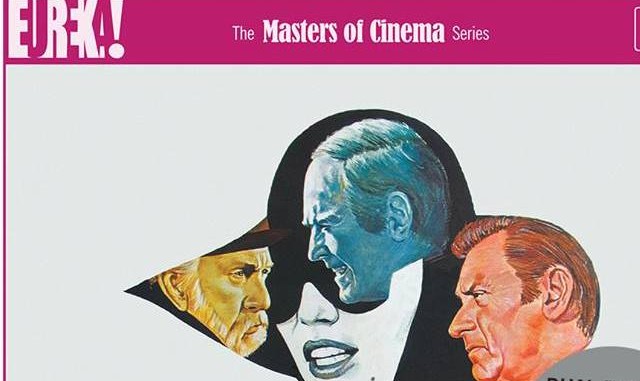
Fedora Blu-ray Review

In the opening prologue of Billy Wilder’s classic film Sunset Boulevard (1950) we hear the narrator, the hero of the story (played by William Holden), telling us that what you are seeing is his dead lifeless corpse in the old rundown swimming pool of faded star from the past. The eponymous hero of that film is Joe Gillis, a Hollywood hack screenwriter who is on the run and hiding out in the dilapidated mansion of a long retired Hollywood actress from the silents, Norma Desmond (Gloria Swanson) who’s only contact with the outside world, other than with her chauffeur is all the other “waxworks” of the silent period whom she plays cards with once a week. In 1978 Wilder returned to a similar theme and once again hired Holden to be the character that unsettles the world of a reclusive former star. This time, 28 years after Sunset Boulevard, Holden plays Barry ‘Dutch’ Detweiler, an independent Hollywood producer who has been working in the business for years. He is curious to track down Fedora, an old Hollywood starlet who has been long in retirement and become reclusive, subsequently disappearing off the face of the earth. He has a connection with her as he was the assistant director on a film they had worked on many years ago and they had shared an evening together on a Santa Barbara beach. He wants to entice her back to the screen. Arriving in Corfu he is told that she lives on an island a short journey away. He knocks on the door and is unceremoniously told to leave by the chauffeur and the former actress’s personal assistant who are both very protective of their employer. He goes round the back and spies the patio where he sees a fight break out between someone who is said to be a countess and Fedora herself, over Fedora playing pop records on a portable stereo. He sees that all is not harmonious in this retreat. Later he sees Fedora’s limo in the town and traps her in a camera shop. She is aloof but also appears to be crying out for help. He later makes contact with the surgeon who lives with her (played by veteran actor Jose Ferrer) and becomes the middle man in a meeting between Fedora and ‘Dutch’ Detweiler. The meeting is cold and met with hostility by the personal assistant precipitating in Fedora running away upset at everyone else’s hostility at not being involved in the decision to go back into the spotlight. And here is where the twist is revealed, the mystery of which is unravelled throughout the rest of the film. It turns out that Fedora is in fact Fedora’s daughter who had gone under surgery to be her mother when making a previous comeback and the Countess is Fedora herself. To say anymore would reveal too much.
Fedora is not a great film, in fact it could be argued, despite the talent involved, Wilder’s worst film. There is a good film there waiting to get out, but despite the ridiculous and preposterous plot it could have been given more style. It is a West German/French co-production and was shot mostly in Corfu and Paris with some interiors in Munich. Holden’s character feels under developed, whereas Swiss actress Marthe Keller (who plays Fedora) and veteran German actress Hildegard Knef are rather infuriating with their forced baritone accents trying to sound mysterious and emulate Greta Garbo as if constantly saying “I vant to be alone” – in probably one of the worst examples of a younger person playing an older character since Agnes Moorehead played a reclusive 100-year-old living in a rundown Venetian palazzo in The Lost Moment (1947). The story is based off a short story by Tom Tryon and was scripted by Wilder and his long-time collaborator I.A.L. Diamond. Overall it probably felt dated even in 1978 and in many ways is more like an Italian giallo. In the past it has been a film that has divided critics, many even finding it to be one of Wilder’s best later films, but as a character driven tragedy it doesn’t hold a candle to Sunset Boulevard. Neither Keller nor Knef have the same gothic grandeur of Swanson’s Norma Desmond or even Moorehead’s Miss Havisham style old lady in The Lost Moment for that matter. With Fedora’s mysterious recluse there is certainly something of the Greta Garbo about her; made at a time when that mysterious elusive and reclusive star still held some mystique (she didn’t die until 1990).
Released on Eureka!, in their Masters of Cinema series the package is, as can be expected, beautifully presented if not as plentiful as other releases. Surely there would have been better examples to place Billy Wilder in the Masters of Cinema series. Asides from the many deleted scenes shown here, there is a good short piece showing the image quality of the film before and after restoration and with the aid of a decent TV or monitor the difference in quality is more than apparent. A good film to own for fans of Billy Wilder, or even European cinema.
Chris Hick
